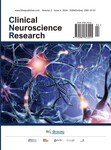Abstract
The purpose of this study is to observe the effects of cognitive behavioral therapy (CBT) on neuropsychiatric symptoms and quality of life in patients with new-type drug abuse. Methods: Sixty patients with new-type drug abuse admitted to the hospital from April 2023 to March 2024 were randomly divided into a control group and an observation group. The control group received conventional treatment, while the observation group received additional cognitive behavioral therapy. The scores of the self-rating symptom scale (SCL-90), self-rated health measurement scale (SRHMS), short-form 36 health survey (SF-36), and patient satisfaction were compared between the two groups before and after treatment. Results: After treatment, compared with the control group, the observation group showed significant improvements in SCL-90 scores, SRHMS scores in all dimensions, and SF-36 scores (P < 0.001). The satisfaction score of the observation group was also significantly higher than that of the control group (P < 0.05). Conclusion: For patients with new-type drug abuse, cognitive behavioral therapy can significantly improve psychiatric symptoms, relieve anxiety and depression, reduce hallucinations and delusions, and enhance quality of life, leading to positive changes in physical, psychological, and social functions.
References
Li F, Liu Y, Li RL, et al., 2017, Analysis of Influencing Factors of New Drug Abuse among 242 Heroin Addicts Treated with Methadone Maintenance Therapy in Outpatient Clinics. Bulletin of Disease Control and Prevention, 32(1): 23–25 + 30.
Chen YL, Zhu JY, Lu XM, et al., 2018, Discussion on the Mental Health Status and Nursing Intervention of New Drug Abusers. Chinese Journal of Drug Abuse Prevention and Treatment, 24(4): 197–199.
Cheng Z, Chen GH, Dai MM, et al., 2018, A Case-control Study on Influencing Factors of New Drug Abuse among Methadone Maintenance Treatment Patients in Jiangsu Province. Chinese Journal of Epidemiology, 39(5): 625–630.
Zhao RJ, Du JG, Niu YJ, 2019, A Case Report of Psychotic Disorder Caused by Mixed Abuse of New Drugs. Journal of Clinical Medication, 17(8): 90–92.
Zhang YJ, 2016, Investigation on the Current Situation of New Drug Abuse among Methadone Maintenance Treatment Patients and Exploration of Intervention Strategies, thesis, Xinjiang Medical University.
Jiang HB, 2014, Analysis of New Drug Abuse and its Influencing Factors among HIV-positive Methadone Maintenance Treatment Patients, thesis, Anhui Medical University.
Li J, Li Y, Liang J, et al., 2019, Differences in HIV Intervention Services Received by Abusers of New and Traditional Drugs. Chinese Journal of AIDS & STD, 25(3): 268–272.
Chen YL, Zhu JY, Hao XY, 2018, Evaluation of the Effect of Cognitive Behavioral Therapy on Neuropsychiatric Symptoms of New Drug Abusers. China Medicine and Pharmacy, 8(7): 240–242
